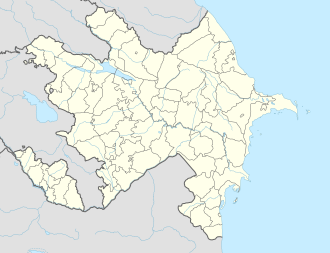Garadonlu | |
|---|---|
Municipality | |
| Azerbaijani: Qaradonlu | |
| Coordinates: 39°47′29″N48°02′34″E / 39.79139°N 48.04278°E | |
| Country | |
| District | Imishli |
| Population | |
• Total | 1,185 |
| Time zone | UTC+4 (AZT) |
Qaradonlu (Garadonlu) is a village and municipality in the Imishli District of Azerbaijan. It has a population of 1,185.

